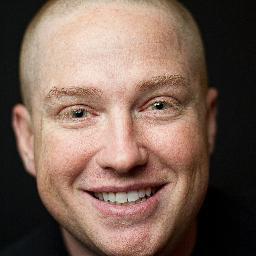Article by Ryan Gray, MD | “Doctor’s Orders” curated by editor Sasha Yakhkind
If I had to do it all over again, the biggest thing that I would work on would be my study habits.
I took three years off after completing undergrad at the University of Florida before matriculating at New York Medical College in 2005. After three years, I had forgotten how to study.
During my time off, I worked as a personal trainer and took one or two tests for different training certifications. I wouldn’t call what I did to prepare for those tests studying though, so it did not prepare me at all for the type of studying that I was going to do in medical school.
One of the many things I learned as a personal trainer and during my exercise physiology curriculum is muscle atrophy. Just as a muscle atrophies after about three days if you don’t exercise it with strength training, your study skills will atrophy if you’re not constantly working on them.
During my time off, not only did my studying skills had not just atrophied, they had completely wasted away.
When I started medical school, the first couple of months felt brutal. Not only was the material coming fast and furious, but my study habits were non-existent.
The biggest problem was not that my study habits were terrible — it was the fact that I didn’t realize it, or I failed to accept it, and I didn’t try to improve.
During first year, I rotated between studying in the library and spending hours with my books at a local cafe that served the most delicious chocolate chip cookies ever (this was prior to me going gluten free!)
Not only did I eat way too many cookies, but when I tried to read I found it hard to focus and I would fall asleep over and over. My wife, Allison, would have to constantly wake me up! She was my personal alarm clock. I found myself distracted, watching people walking outside on the streets instead of reading carefully and going over my notes.
Allison helped me study for exams, making sure that I knew the material. So, I actually did pretty well that year.
During my second year, I still hadn’t revised my study habits. At our school, attendance in class wasn’t mandatory, so unless I had a required lab or small group session, Allison and I stayed at home to study.
We had a student-run scribe service that would provide us with transcriptions of all of our class lectures, so we really didn’t have to go to class. Unfortunately, while Allison was good at making me study, I didn’t analyze and didn’t understand that reading the transcribed notes was not actually the best way that I learned. Allison was very good at teaching herself by reading the textbooks, but I wasn’t.
Looking back now, I realize that I would have understood a lot more if I went to class first. Hearing the lecture, actively taking notes, and then reading the notes would have been a much more efficient use of my time and energy.
Instead, I kept trucking away, doing the same thing over and over again, hoping each time that the results would be different. Albert Einstein was correct in his definition of defined insanity as “doing the same thing over and over again and expecting different results.” By this standard, then I was completely insane. I wasn’t failing or even anywhere near the bottom of my class, but I wasn’t excelling in the way that I was used to before medical school.
Course correction is what I should have done. Constantly improving step-by-step, figuring out what I’m doing right today, what I’m doing wrong today, and what I need to be doing to be where I want to be tomorrow. Think of an airplane flying from New York to Los Angeles. It is almost never perfectly on course, yet it (almost) always ends up in the right place. That’s because its elaborate computer system constantly tracks it and corrects its course to where it should be.
For all the students out there constantly in the grind of studying, don’t assume that the way that you study today is necessarily the right way to be studying for you. Everyone’s study habits are different. Just because your roommate or your significant other wants to study in a library, it doesn’t mean that this is the best place for you. Don’t sacrifice your ability to study effectively just to study with those people.
Constantly analyze what’s working well and what’s not. Constantly be looking to get better. That’s the only way that you’ll survive the craziness that is medical school.
 Dr. Ryan Gray, MD is currently a practicing flight surgeon in the United States Air Force. Ryan graduated from the University of Florida (GO GATORS!) with a BS in Exercise and Sports Sciences, and received his MD from New York Medical College. After graduating from medical school, Ryan completed his internship through a Tufts Medical Center transitional medicine program at Lemuel Shattuck Hospital. He is the co-founder of Medical School HQ with Dr. Allison Gray, MD.
Dr. Ryan Gray, MD is currently a practicing flight surgeon in the United States Air Force. Ryan graduated from the University of Florida (GO GATORS!) with a BS in Exercise and Sports Sciences, and received his MD from New York Medical College. After graduating from medical school, Ryan completed his internship through a Tufts Medical Center transitional medicine program at Lemuel Shattuck Hospital. He is the co-founder of Medical School HQ with Dr. Allison Gray, MD.



